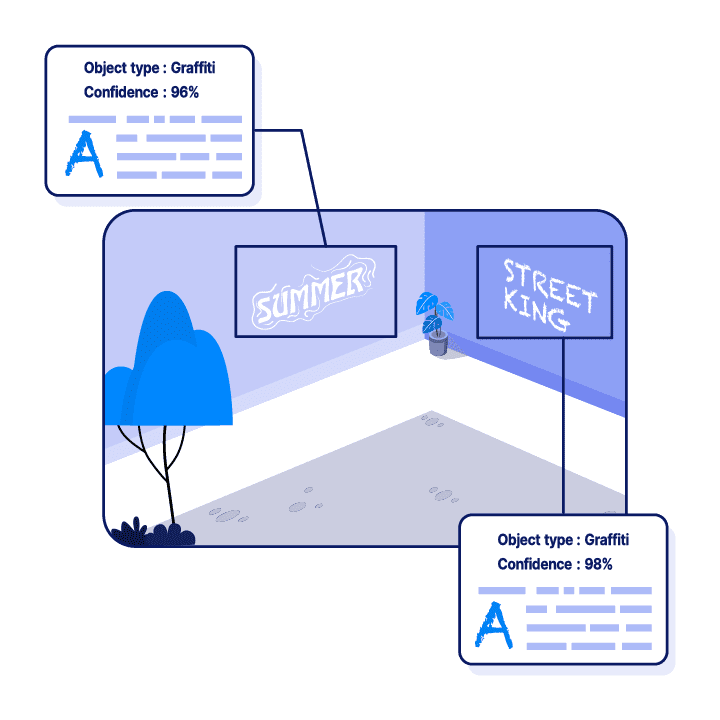Artificial Intelligence in Construction
Artificial Intelligence (AI) is unequivocally recognized from the point of mechanical advancement and something that all people are accustomed to utilizing at work and in their day-to-day routine. It has initiated a significant change that will greatly impact work, society, and the worldwide economy.
AI in construction industry is utilized to design the means of electrical and plumbing frameworks in present-day structures. Development organizations are now using AI to foster security frameworks, arrange and control building destinations, gathers and assesses the continuous associations of laborers, apparatus and materials on the building site and cautions groups in case of wellbeing issues, development blunders or low efficiency.
AI is unlikely to replace the human workforce. However, it will change plans of action in the development business, lessen expensive errors and make construction operations more productive.
Most common AI Use Cases


Process Optimization
Design software that analyses a countless number of project development alternatives and adds to the persistent improvement of planning.
Models that decreases inspection costs
Risk Management
Image recognition and classification systems that can evaluate photos and videos collected on construction sites and identify incorrect or dangerous behavior to support the design of safety courses.
Robotic assembly automation
As a result, an autonomous robot with some of the workers' skills, such as the ability to manipulate various construction materials, walk over uneven terrain, and assemble structures with impeccable precision, can be created. The machine strictly adheres to the programming developed by the engineers, with the main advantage of having a near-zero chance of making an error.
Application of Big Data on the Construction Site
Some studies and experiments provide hints about what will become common in civil construction in the future, and one of them is the use of Big Data on construction sites. To give you an idea, the Massachusetts Institute of Technology (MIT) is already using computers to collect and analyze information for the construction of wind farms. Computers analyze wind behavior and, based on the data generated, can optimize the location where wind blades will be installed. In this case, in addition to artificial intelligence increasing energy generation, computer-based analyses take less time than those performed by field engineers.
Smart building construction
The concept of intelligence will be what distinguishes new constructions, and with artificial intelligence in construction, this can be applied to various items in a building, for example. More precise motion sensors that ensure energy savings, temperature sensors that detect the presence of people in a given environment, and smart elevators that optimize resident movement. If these initiatives already exist in some newer buildings, the tendency is that they are combined — in an intelligent way — to generate savings in time and money.
Customer service that is personalized and based on relationships
Some construction companies, particularly those with direct customer contact, require the maintenance of entire teams to provide ongoing support, such as answering questions, generating duplicate invoices, or responding to complaints. This necessitates a slew of expenses and processes that can be streamlined with artificial intelligence in construction industry.
Customer success stories
The AI Superior team developed a web application that allows users to communicate with a Custom LLM through a chatbot interface. This innovation empowers organizations to establish private, hosted
A workplace hygiene solutions company approached AI Superior with a unique task: to create a system capable of autonomously identifying when an area needed cleaning, reducing the need for
In today’s dynamic real estate market, accurately assessing the price of different zones within a city is essential for real estate professionals. However, this task has traditionally been challenging


AI Superior, in collaboration with an Ophthalmology Centre, has developed an advanced deep learning model to estimate the volume of fat and muscle in human eyes using CT and


AI Superior has developed an innovative solution for an insurance company that was seeking to provide usage-based insurance to their customers. Leveraging deep learning algorithms, AI Superior has created


AI Superior has designed an innovative solution for municipalities to rapidly detect and localise graffiti in their cities, using state-of-the-art deep learning algorithms. This real-time, high-accuracy graffiti detection system


The AI project lifecycle has been adopted from an existing standard used in software development. Also, the approach takes into account the scientific challenges inherent in machine learning projects involving software development processes. The approach aims to ensure the quality of development. Each phase has its own goals and quality assurance criteria that must be met before initiating the next stage.
Send Us a Message
By clicking Submit, you agree to our Privacy Policy.
